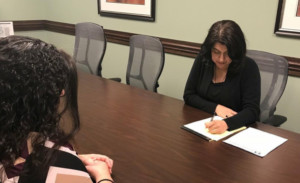 Right now, the South Carolina legislature has taken up debate on a bill that would increase the liability of government-operated hospitals and medical facilities in the event of malpractice or other injurious conduct. The bill, known as S0007 in the South Carolina Senate, would also amend the South Carolina Torts Claims Act (SCTA) to raise the caps on jury awards resulting from malpractice cases against charitable hospitals and care organizations.
Right now, the South Carolina legislature has taken up debate on a bill that would increase the liability of government-operated hospitals and medical facilities in the event of malpractice or other injurious conduct. The bill, known as S0007 in the South Carolina Senate, would also amend the South Carolina Torts Claims Act (SCTA) to raise the caps on jury awards resulting from malpractice cases against charitable hospitals and care organizations.
The text of the bill calls for an over 300% increase in the total amount of damages that may be awarded to claimants in cases against government entities when the damage to the party was caused by a non-physician or nun-dentist employed by the government. In practice, that would increase liability for mistakes or accidents involving care provided by nurses and Advanced Practice Providers (APPs), which would mark a major change in the way medical malpractice cases are handled statewide.
The reason the changes could be significant has to do with the fact that the current limits under the SCTA were set at a time when many people believed that jury awards had grown excessive and had become a threat to the continued existence of the government-operated hospital system. The specificity of the limits set forth in the SCTA also has a huge effect on the rights of claimants. According to the attorneys at Steinberg Goodman & Kalish, malpractice actions “can be brought against any person or entity that provides care, including doctors, nurses, surgeons, technicians, dentists, physical therapists, optometrists and hospitals”, but the SCTA made filing an action for all but a physician-related injury cost prohibitive.
To remedy that, the new bill would alter the current liability limits in the following ways:
- Raise the cap on loss claims due to a single occurrence from $300,000 to $1,000,000
- Raise the total recoverable sum due to a single occurrence from $600,000 to $2,000,000
In addition, the new limits would also be automatically adjusted each year according to the Department of Labor’s Consumer Price Index for all Urban Consumers (CPI-U), South Region, which would keep them in line with inflation and rising consumer prices in South Carolina. To avoid having to retool the rest of the SCTA, the same annual adjustments would also apply to any other limits set forth in the existing law.
For South Carolina residents, the changes would mean having an avenue to pursue meaningful damages for medical malpractice in the state, but critics also note that the increased liability could raise healthcare costs and insurance rates statewide. That’s because medical organizations had long made it a standing practice to keep a detailed account of all actions taken by non-physicians and non-dentists in their employ so as to shift blame for errors onto employees covered under the restrictive caps. Now that they would no longer be able to avoid liability in that way, carrying costlier malpractice insurance and maintaining larger financial reserves will become the norm.
The bill’s sponsors, who include Senators Goldfinch, Talley, Harpootlian, Malloy, Climer, and Kimpson plan to follow up on it with a second measure that would account for some situation-specific exceptions to the new financial limits. That could mean additional loopholes for litigants that would circumvent the caps altogether, as well as the addition of some more protections for hospitals worried by the increases. So far, it’s unclear what changes could be forthcoming to the existing bill as it sees further debate, but as it is still under consideration, citizens or groups that have concerns may still contact their state senator to register their opinion on the measure.


